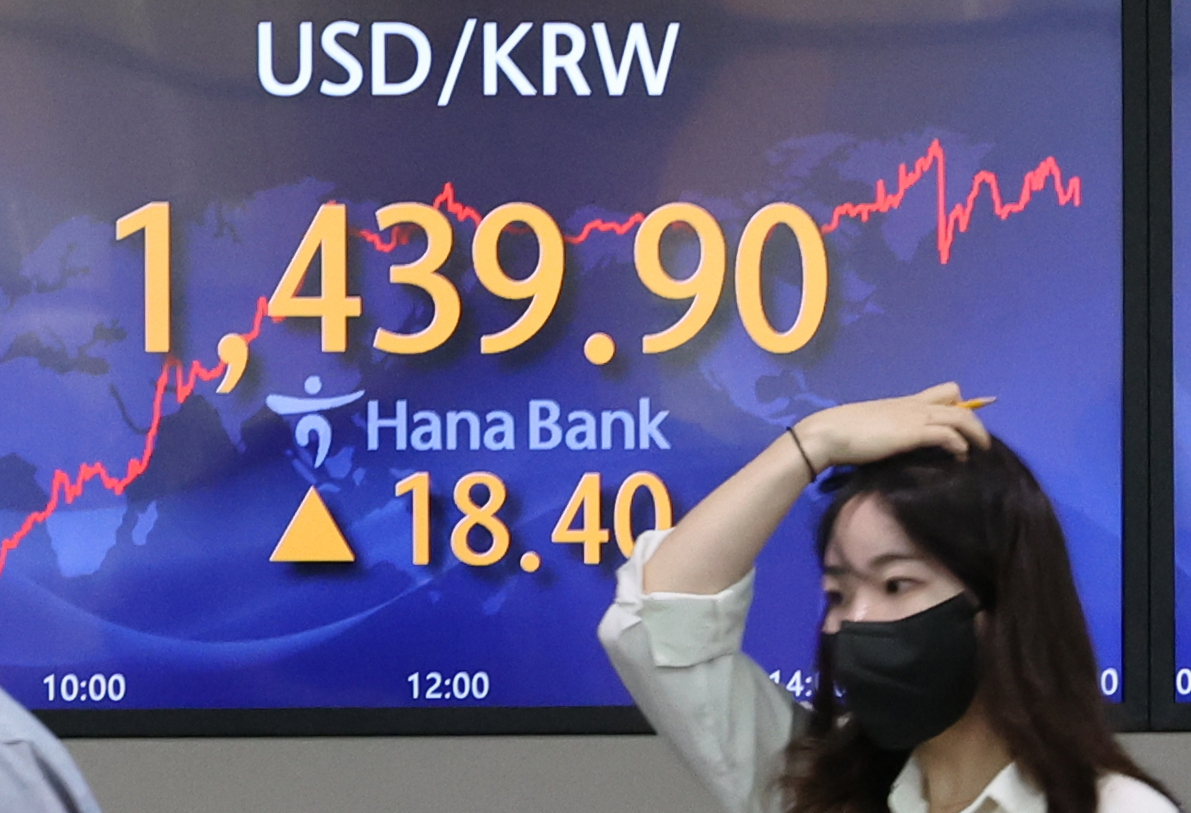 |
In this file photo, an electronic signboard in the dealing room of Hana Bank in Seoul shows the South Korean currency closed at 1,439.90 won against the US dollar last Wednesday down 18.40 won from the previous session, amid mounting concerns over a global recession. (Yonhap) |
South Korea's foreign reserves shrank at the fastest pace in about 14 years last month as authorities unloaded dollars to stall the local currency's excessive slide against the greenback, central bank data showed Thursday.
The Bank of Korea (BOK), however, dismissed worries that the country's foreign reserves might not be sufficient enough to defend the won down the road and brace for a financial crisis.
The country's foreign reserves had stood at $416.77 billion as of end-September, down $19.66 billion from the previous month, according to the data provided by the BOK.
This marked the fastest pace of an on-month decline since October 2008, when the reserves declined by the largest ever $27.42 billion in the midst of the financial crisis.
Foreign reserves consist of securities and deposits denominated in overseas currencies, International Monetary Fund reserve positions, special drawing rights and gold bullion.
September's decline came as South Korea is struggling with the won's fast descent against the US dollar amid worries that aggressive monetary tightening in major countries could throw the global economy into a recession.
The won has depreciated around 16 percent against the dollar so far this year.
The BOK and the finance ministry have unloaded dollars to stem the won's sharp slide with the government repeatedly warning of necessary action if herd behavior persists. The BOK, however, did not disclose data on dollar selling last month.
The foreign reserves decline was also attributed to a decline in converted value of non-dollar assets due to the dollar's continued ascent, the BOK said.
Foreign securities, such as US Treasuries, had been valued at $379.41 billion as of end-September, down $15.53 billion from the previous month. It accounted for 91 percent of total foreign reserves.
The value of deposits also decreased $3.71 billion on-month in September to $14.19 billion, which made up 3.4 percent of the total.
South Korea had been ranked the world's eighth-largest holder of foreign reserves as of the end of August, the BOK said.
The BOK assured that the country's foreign reserves remain sufficient in dealing with financial instability, citing a large amount of its offshore assets and low ratio of short-term liabilities.
"The BOK thinks that our foreign reserves remain sufficient," Oh Kum-hwa, a senior BOK official, told reporters. "Last month, the credit ratings agency Fitch also said we are holding a sound position when it comes to foreign reserves compared with countries of the same credit ratings."
The official said that foreign reserves have decreased a monthly average of $4.77 billion in recent months, which is lower than a monthly fall of around $7-8 billion during the 2008 financial crisis.
"It is not quite appropriate to describe the current economic conditions as in a financial crisis," he said. (Yonhap)







